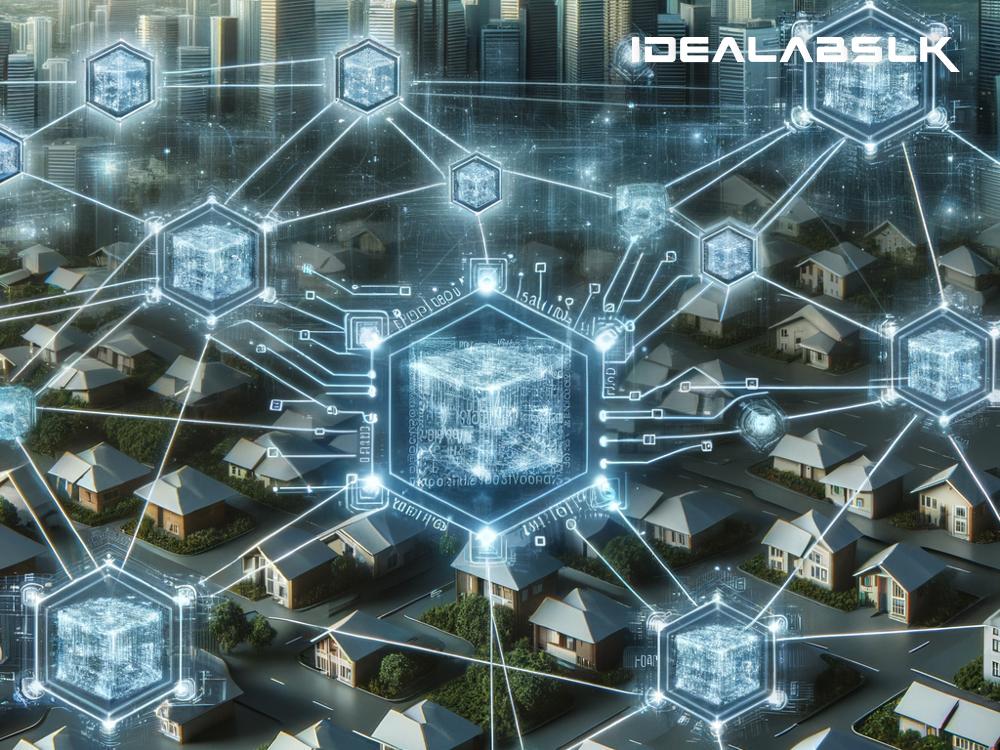Unraveling Blockchain for Enhanced Property Value Chain Security
In the realm of real estate and property transactions, the journey from initiating a property search to finally getting the keys can often feel like navigating through a maze. This process, commonly known as the property value chain, involves numerous steps where sensitive information is exchanged and significant funds are transferred. Given the complexities and high stakes involved, the need for a secure, transparent, and efficient system is paramount. Enter blockchain technology—a revolutionary tool that promises to transform the property value chain.
What is Blockchain?
Imagine a digital ledger, not unlike a traditional notebook, where transactions or records are stored. However, instead of being kept in a single location, this ledger is duplicated across a network of computers. This setup ensures that each entry is securely encrypted and linked to the previous one, forming a chain of blocks—hence the name, blockchain. What makes blockchain stand out is its innate ability to provide a secure and unalterable record of transactions, without the need for a central authority.
The Traditional Property Value Chain: A Security Challenge
Traditionally, the property value chain involves multiple stakeholders, including buyers, sellers, real estate agents, banks, and legal entities. Each of these participants plays a crucial role, from listing a property to closing the deal. The process encompasses various stages, such as financing, due diligence, inspections, and, finally, the transaction itself. However, this conventional system faces challenges such as document fraud, data breaches, and a lack of transparency, which can lead to disputes and delays.
How Blockchain Reinforces Security in the Property Value Chain
Blockchain technology has the potential to address these challenges head-on, ensuring a smoother and more secure property transaction process.
-
Transparency and Trust: With blockchain, every transaction is recorded transparently and permanently. This means that all parties involved can view the history of a property, from past transactions to verified ownership records, fostering trust among stakeholders.
-
Eliminating Fraud: Through its decentralized nature and cryptographic security measures, blockchain drastically reduces the risk of forgery and fraud. Documents stored on the blockchain, such as property titles and contracts, become nearly impossible to tamper with, ensuring their authenticity.
-
Streamlining Processes: By automating key processes via smart contracts—self-executing contracts with the terms of the agreement between buyer and seller directly written into lines of code—blockchain can significantly cut down on paperwork and manual intervention. This not only speeds up transactions but also minimizes human errors.
-
Enhanced Data Security: The decentralized aspect of blockchain means that there's no single point of failure. Data is spread across a network, making it incredibly difficult for hackers to compromise the integrity of the system.
-
Cost Reduction: Blockchain can also help in reducing costs associated with property transactions. By removing intermediaries and automating processes, stakeholders can save on fees and charges that are typically part of real estate dealings.
Real-World Applications and Future Prospects
Several countries and companies are already exploring the use of blockchain in real estate. For instance, Sweden has experimented with blockchain for land registry purposes, aiming to enhance the efficiency and security of property transactions. Similarly, various startups are developing blockchain-based platforms that connect buyers, sellers, and service providers directly, removing the need for intermediaries and reducing transaction times.
The future of blockchain in the property value chain looks promising, with potential applications extending beyond secure transactions to improving property management, leasing, and even crowd-funded real estate investments. As technology evolves and more stakeholders become comfortable with digital transactions, blockchain could very well become the backbone of real estate operations.
Simplifying the Complex
In the world of property transactions, where security, transparency, and efficiency are of utmost importance, blockchain stands out as a beacon of innovation. By providing a tamper-proof system of record, automating processes, and ensuring the integrity of data, blockchain technology is poised to redefine the property value chain. It's time for stakeholders in the real estate ecosystem to embrace this change and harness the power of blockchain, paving the way for more secure, transparent, and efficient property transactions in the digital age.

